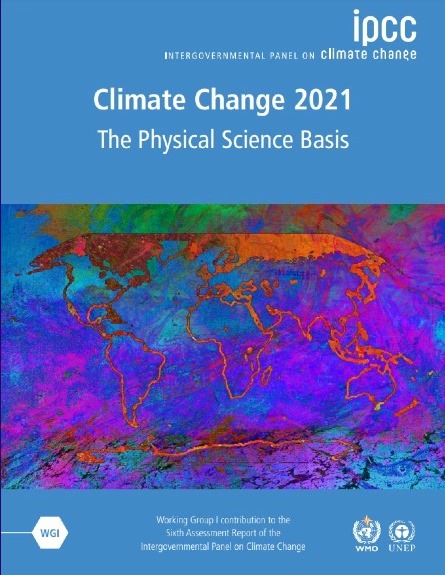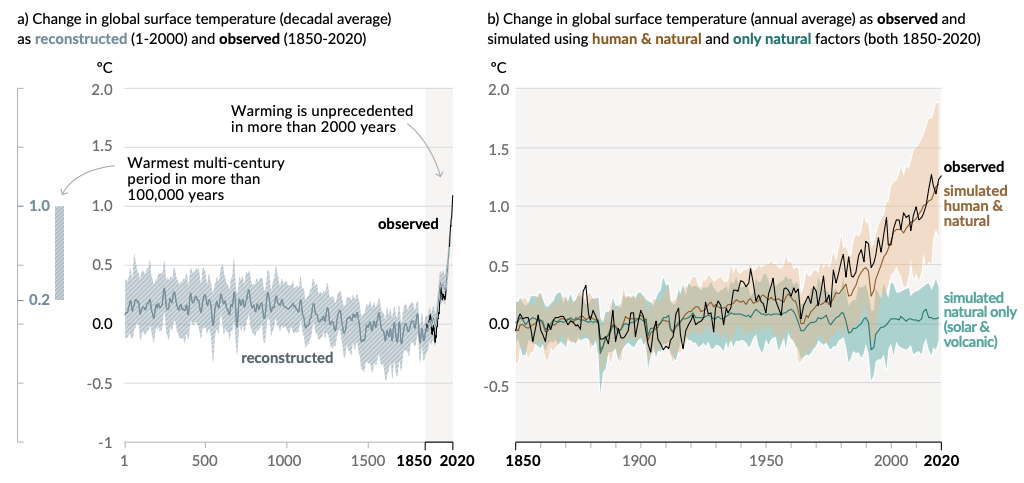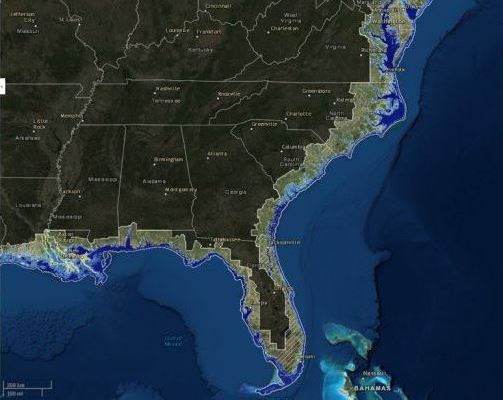
Mark Twain famously quipped that “Everybody talks about the weather but no one ever does anything about it.” Twain’s joke has never been more true nor less funny. The Intergovernmental Panel on Climate Change (IPCC) has released its first major scientific assessment since 2014, a 4,000 page meticulously detailed and rigorously reviewed STFU to every politician, pundit, fake “scientist,” industrial mouthpiece, eschatologist, or TikTok charlatan who continues to deny the reality of climate change and the role of human enterprise. To say the evidence of climate change and human impact is “overwhelming” is an understatement of apocalyptic proportions. In the words of UN Secretary-General António Guterres, the conclusions of this report represent “a code red for humanity.”
The Sixth Assessment Report from the IPCC’s Working Group One was prepared by an international collective of 234 scientists based on the findings of some 14,000 individual peer-reviewed studies. It was signed off on by the governments of 195 countries. The report is not reader friendly. The executive summary for policy makers alone is 42 pages and even Al Gore would have a hard time plowing through it. But you don’t have to read a single sentence of the report nor any of the great many fine summations provided by a great many fine science writers to know our planet is in dire straits. As X-file agents Mulder and Scully would tell you, the inconvenient truth is out there and it’s out there for even the most willfully blind to see.
From raging fires incinerating the West, to monsoon rains washing away parts of the Northeast and Midwest, to hurricanes and superstorms threatening to drown the Gulf coast, to heat domes that span the entire North American continent, we are suffering from the effects of weather on steroids, grotesquely pumped up by a carbon dioxide heated atmosphere. And it’s not just us. As I write, Greece is on fire while the rest of Europe is flooded; China’s rains are too much even for its always thirsty rice crop; and the ice in Greenland and the permafrost in Siberia are melting. The IPCC report shows this past decade was hotter than any period in the past 125,000 years, and atmospheric carbon dioxide is at a two million-year peak.
The IPCC report also shows conclusively that the greenhouse gases from the burning of coal, oil and other fossil fuels have raised the global average temperature by about 1.1 degrees Celsius (1.8 degrees Fahrenheit) above the late 19th century average. Furthermore, this warming pathway has already been set for the next few decades, meaning we’re in the third stage of triage now. For those seeking to blame the sun for this warming, fuhgeddabudit. The IPCC report says the contribution of natural phenomena to atmospheric warming is essentially zero.

As previously noted, summaries, highlights and analyses of the IPCC’s new report are widely available – just Google IPCC and take your pick. I want to address two points that aren’t so widely discussed. The first point is the economy, not in terms of the tremendous economic losses we might see when urban coastlines are redrawn by rising sea levels, or agrarian lands are rendered unsuitable for the production of food, but in terms of jobs. The Maginot Line of the fossil fuel industry and all of its myriad defenders has been that transitioning to clean energy sources such as solar, wind, hydro or geothermal, will inflict unbearable economic pain through the loss of jobs. Once upon a time that might have been true, but this argument has been rendered as anachronistic today as the Maginot Line was at the start of World War II. Studies – again by collectives of international researchers – show that transitioning to clean energy sources will result in a net gain of millions of jobs. One, sponsored by the European Institute on Economics and the Environment, looked at 50 countries, including the United States, and projected that energy jobs are likely to jump 50-percent, from an estimated 18 million people today to more than 26 million by 2050 if the world transitions from fossil fuels to green energy sources. Here at home, a study from the Bookings Institute shows that many of the current fossil fuel hubs, including Texas, Kentucky, West Virginia and Alaska, are ideal sites for renewable energy production. These jobs would be higher paying and far more reliable than for example coal mining, and wouldn’t include black lung disease as a benefit.
The second point is the projections as to what will happen if global average temperature increases another two to four degrees. The aforementioned deniers dismiss these projections as speculation and cite previous scientific projections about the effects of climate change on weather that have been wrong. It is true that at the beginning of this century, scientists were unable to definitively link climate change to specific extreme weather events. This is no longer the case. World Weather Attribution, another international collective of scientists, has employed state-of-the-art technology to perform real-time analyses to such extraordinary events as the big freeze this past winter in Texas, the on-going drought in California, and the recent catastrophic floods in Tennessee. The verdict left no room for argument: these events are the direct result of climate change.
The thing of it is, we don’t have to guess what happens when Earth’s atmosphere is choking on carbon dioxide and its land masses are submerged by the seas: our planet has been there and done that. By studying isotopes of oxygen, silicon and other key elements in marine and surface rocks, scientists have determined that some 3.5 billion years ago, what is known as the Archean Eon, Earth was one ginormous hot tub, a water world with an atmosphere that was almost nothing but greenhouse gases. No fossil remains have been detected on what little surface area there was, but the oceans do appear to have hosted life. That life was microbial, mostly cyanobacteria. When Matthew in the Bible declared that the meek shall inherit the Earth, it is safe to presume he was not referring to microbes.

We’re nowhere near to being there yet and such a future for our planet can most certainly be avoided if we muster up the fortitude to do what is necessary. Code red does not mean code dead, but it does mean the need to take action is immediate. While riding a stationary bike at the local Y, I saw an ad for the American Petroleum Industry. The visuals looked like something produced for the Sierra Club with blue skies, green foliage and rushing white waters. A soft, reassuring female voice – the kind of voice that explains why wearing an adult diaper or swallowing a pill to correct EDS is nothing to be ashamed about – delivered a soothing message about how the API supports responsible production and use of fossil fuels. The latest IPCC report makes it abundantly clear that the time for responsible production and use of fossil fuels is long past. The time to transition to green energy is now. Otherwise code red for climate change will mean code dead for humanity.
